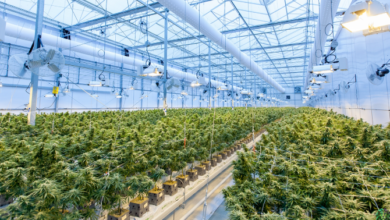Does Cbd Thin Your Blood

The relationship between CBD and blood thinning is a complex and emerging topic. Research suggests that CBD may influence blood viscosity and interact with anticoagulant medications. This interaction could potentially heighten the effects of these drugs, raising concerns about excessive blood thinning. Understanding these dynamics is crucial for individuals considering CBD, especially those on blood thinners. What implications might this have for their health and safety?
Understanding CBD and Its Properties
Cannabidiol (CBD) is a compound derived from the cannabis plant, known for its therapeutic potential without the psychoactive effects associated with tetrahydrocannabinol (THC).
CBD offers various benefits, including pain relief and anxiety reduction.
Understanding proper CBD dosage is essential to maximize its effectiveness while minimizing side effects.
This knowledge empowers individuals to explore the advantages of CBD confidently and responsibly.
The Science Behind Blood Thinning
Blood thinning, a critical physiological process, involves the regulation of blood viscosity and the prevention of clot formation.
It plays a vital role in maintaining optimal blood circulation. Clotting factors, proteins in the blood, contribute to this process by facilitating the formation of clots when necessary.
Understanding the balance between clotting and thinning is essential for overall cardiovascular health and function.
Potential Interactions of CBD With Anticoagulants
How might CBD interact with anticoagulant medications?
CBD metabolism can influence the effectiveness of these drugs, potentially amplifying their anticoagulant effects.
As CBD may inhibit certain liver enzymes, it could alter the breakdown of anticoagulants, leading to increased blood-thinning properties.
Individuals using both CBD and anticoagulants should consult healthcare professionals to navigate these potential interactions safely and effectively.
Current Research on CBD and Blood Viscosity
Recent studies have begun to explore the relationship between CBD and blood viscosity, revealing intriguing insights into how this compound may influence hemostatic properties.
Researchers have observed varying CBD effects on blood viscosity, suggesting potential modulation of clotting mechanisms.
These findings warrant further investigation to fully understand the implications of CBD for cardiovascular health, as well as its potential therapeutic applications.
Considerations for CBD Users and Blood Health
What should CBD users consider regarding their blood health?
It is essential to monitor CBD dosage, as higher amounts may influence blood viscosity. User experiences suggest variability in responses, emphasizing the need for personal assessment.
Users should consult healthcare professionals, particularly if they are on anticoagulant medications, to ensure safe integration of CBD into their wellness routines while prioritizing blood health.
Conclusion
In conclusion, while CBD may offer various health benefits, its potential to thin blood requires careful consideration, especially for those on anticoagulant medications. Understanding the interactions and implications of CBD on blood viscosity is crucial for safe use. As the saying goes, “an ounce of prevention is worth a pound of cure,” emphasizing the importance of consulting healthcare professionals before incorporating CBD into one’s regimen. This precaution can help mitigate risks and ensure optimal blood health management.




